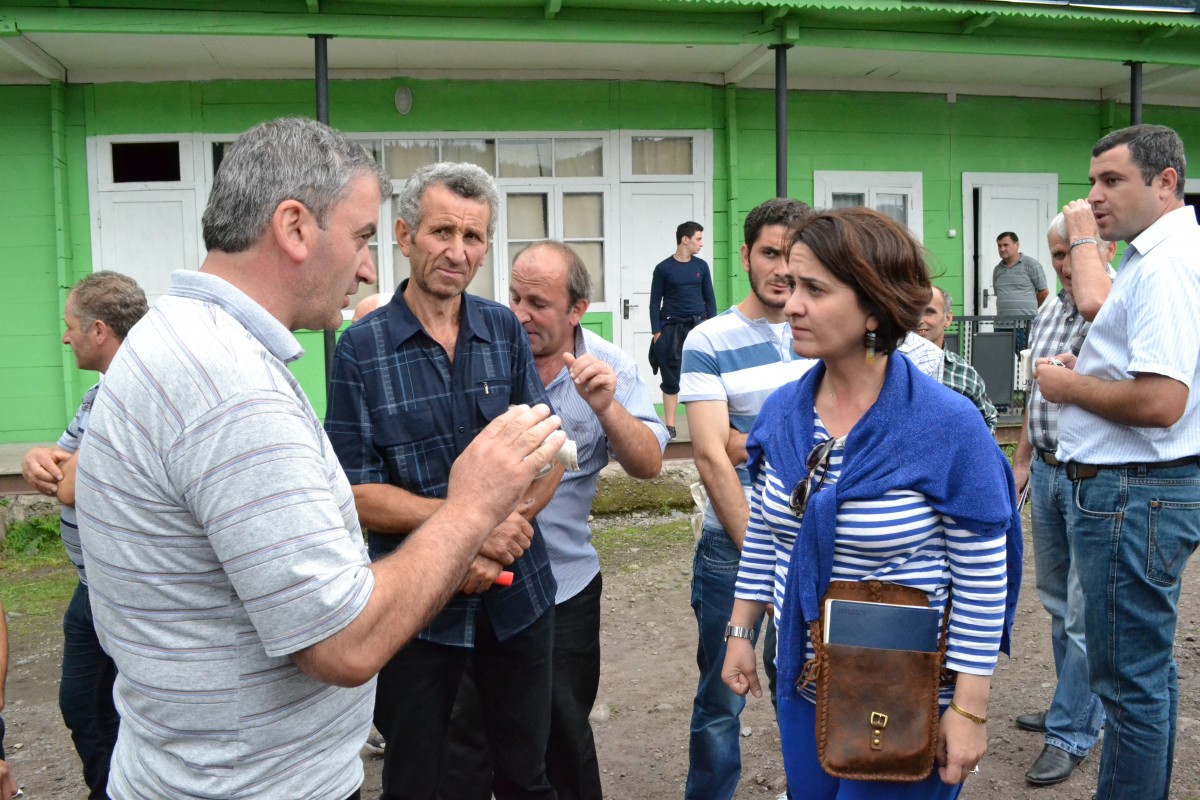Photo Gallery
ACCESS Takes its Outreach Door-to-Door in Ajara
All too often civil society development happens in conference rooms and offices, far removed from beneficiaries, especially from those residing in remote regions. Georgia’s regional population finds it difficult to make their voices heard in Tbilisi. Civil Society Organizations (CSOs) are often criticized that the topics they pursue do not respond to the primary needs of the population.
In order to get closer to the communities at the grassroots level and find the ways how CSOs could contribute to solving their primary problems, the USAID-funded, Advancing CSO Capacities and Engaging Society for Sustainability (ACCESS) project launched an innovative outreach initiative where leading civil society professionals met face-to-face with rural beneficiaries of Upper Ajara this July. Representatives from ACCESS, Transparency International – Georgia, the Economic Policy Research Center, and the Civil Development Agency visited five villages of Keda, Shaukhevi and Khulo municipalities to increase public awareness of CSO activity in Georgia, and to hear firsthand about issues and problems people face in day-to-day life. Informal conversations on the streets and backyards facilitated direct and honest discussions
Such initiatives are critical to building linkages and trust among the population and the CSOs. CSOs now better understand how to represent regional interests. On the matter, Zviad Devdariani of the Civil Development Agency said, “ Sitting in Tbilisi and speaking in conference halls or on television is not enough. We have to go and reach out to the communities at the grassroots level to hear about their concerns and needs so that we can tailor our activities and campaigns according to those needs.”
Common problems identified during the meetings were: issues concerning land registration, the difficulty in delivering local agricultural produce to market, local infrastructural problems – deteriorated village roads and water shortages; In addition to these problems, residents of Merisi and Chanchkhalo villages were particularly concerned about the construction of a new hydropower dam in their region. They claimed to have very little or no information on the project and feared that it could damage the ecosystem and the villages’ water supply, as well as increase chances of landslides in a highly disaster-prone area. Residents of Nigazeuli complained about the disease which is spreading quickly and affecting the nearby forests, thereby causing the deforestation of the surroundings.
As a follow-up to the meetings, the joint letter was drafted to the Minister of Environment and Natural Resources Protection of Georgia and other relevant state officials. It described community concerns and requested to increase communication with local stakeholders about planned hydro-power dam construction activities, address water shortage problems, and mitigate the spread of a disease infecting local forests. At a follow-up meeting, the Deputy Ministers of the Environment and Natural Resources Protection promised ACCESS and its partners to initiate a special inspection of the construction sites to ensure that the construction company observe all environmental regulations and submit the monitoring results to ACCESS. Moreover, ministry representatives promised to assist the Ajaran government in the attempt to resolve the legal issue preventing them from effectively mitigating the spread of the disease in forests.
In response to a separate letter, the head of Keda municipality pledged to allocate funds from 2015 corrected budget to dig two water bore-holes in the village of Vaio and a third in the neighboring village of Inasharidzeebi, to minimize water shortage problems there. The relevant project is now being prepared.
EWMI ACCESS and its partner CSOs will continue to monitor government responses and actions and advocate on behalf of Ajara’s regional population. Furthermore, ACCESS will ensure that the citizens of upper Ajara remain informed about the developments affecting their villages and livelihoods.



















